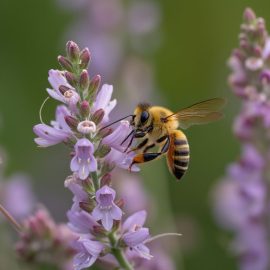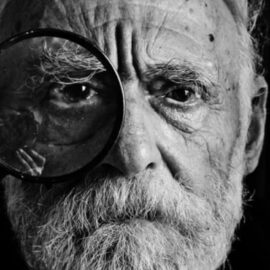
Is it possible to reduce or reverse the symptoms of aging? What medical anti-aging strategies does Nicklas Brendborg suggest?
Nicklas Brendborg, in his book Jellyfish Age Backwards, uses Turritopsis dohrnii—the immortal jellyfish—as an entry point to explore the latest research on longevity. He discusses two scientific methods of anti-aging: medications and cellular engineering.
Continue reading for a closer look at each one.
Medical Strategies to Combat Aging
Brendborg starts his book by discussing the natural lifestyle changes that you can make to slow the aging process. Then, he goes on to share some medical anti-aging interventions that hold promise for treating the symptoms of old age—or even reversing the aging process.
Strategy #1: Medications
Brendborg starts by discussing various drugs that may be able to slow the aging process.
The first of these drugs is metformin, a diabetes treatment that has shown promise for extending a person’s life even if they are not diabetic. This is because insulin resistance tends to increase with age, meaning your body gets less efficient at processing sugar, and therefore is less able to regulate your blood sugar levels. Insulin resistance is the exact problem that drugs like metformin are designed to treat, meaning that this could be a way to treat one of the symptoms of aging.
However, Brendborg is somewhat skeptical about giving metformin to healthy people because it may make exercise less effective, which is counterproductive to a long and healthy life. Exercise and metformin both boost your ability to metabolize sugar, but for reasons that scientists don’t fully understand, these two methods seem to interfere with each other rather than supporting each other as one would expect.
There are also drugs that promote autophagy, the cellular recycling mechanism we discussed in the Dietary Restrictions section. Remember that autophagy naturally declines with age, so enhancing it (using dietary choices, medications, or both) is an effective way to combat that part of the aging process.
One of these autophagy-boosting drugs is rapamycin, an immunosuppressant that’s normally used to prevent the body from rejecting a transplanted organ. Another is spermidine, a compound found naturally in many foods like whole grains and legumes. Spermidine has the advantage of not needing a prescription, since it’s readily available as a dietary supplement.
Finally, Brendborg points out that the development and testing of anti-aging drugs faces significant challenges. This is because, by the very nature of the work, it takes a long time to determine whether anti-aging treatments have been effective. Researchers must either wait decades to see if middle-aged test subjects live longer than expected, or test drugs on elderly subjects with less time for the treatments to work.
Strategy #2: Cellular Engineering
If aging is the result of changes to the DNA, as the theories we discussed earlier suggest, then the best way to reverse aging would be to undo those changes at the cellular level. In fact, Brendborg says that scientists have already discovered a couple of ways to do this. Unfortunately, both of these methods greatly increase the risk of cancer, and there’s currently no safe way to use them on people.
The first method is telomerase activation. Recall our earlier discussion of telomeres, the protective DNA caps that get shorter each time a cell divides. An enzyme called telomerase is able to rebuild those telomeres, so boosting telomerase could let cells avoid senescence and keep dividing forever.
Brendborg says the second method uses a set of four genes, which are called Yamanaka factors after the scientist who discovered them: Shinya Yamanaka. Researchers have used the Yamanaka factors to revert adult cells to embryonic stem cells, literally resetting those cells’ biological clocks. They can then regrow into young, healthy cells of any type.






